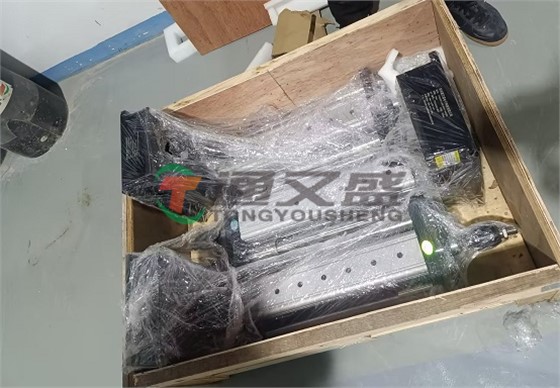When comparing electric and hydraulic cylinders, there are several key differences to consider. Each type has its own advantages and disadvantages, making them suitable for different applications. Here’s a breakdown of the main differences:
1. Power Source
Electric Cylinders: Powered by electric motors, converting electrical energy into mechanical motion.
Hydraulic Cylinders: Operated by pressurized hydraulic fluid, which generates motion through the force of the fluid.
2. Control and Precision
Electric Cylinders: Offer precise control over position, speed, and acceleration, often with programmable motion profiles.
Hydraulic Cylinders: Provide less precise control, as the response can be affected by fluid dynamics and system design.
3. Force Output
Electric Cylinders: Generally suited for moderate loads, but advancements have allowed for higher force capabilities in large electric cylinders.
Hydraulic Cylinders: Excellent for high force applications due to the incompressibility of fluids, making them ideal for heavyduty tasks.
4. Efficiency
Electric Cylinders: Typically more energyefficient, especially in applications with variable loads.
Hydraulic Cylinders: Can be less efficient due to energy loss in the hydraulic system, including heat generated in the fluid.
5. Maintenance
Electric Cylinders: Generally require less maintenance, as they have fewer moving parts and no fluid to manage.
Hydraulic Cylinders: Require regular maintenance to check for leaks, fluid levels, and potential contamination.

6. Installation and Space Requirements
Electric Cylinders: Usually more compact and easier to install, as they don’t need a hydraulic power unit or extensive plumbing.
Hydraulic Cylinders: Often require more space for the hydraulic system, including pumps, reservoirs, and hoses.
7. Response Time
Electric Cylinders: Can achieve quick actuation speeds, but response times can vary based on system design.
Hydraulic Cylinders: Typically have slower response times due to the time taken to move fluid through the system.
8. Noise Levels
Electric Cylinders: Operate more quietly, making them suitable for noisesensitive environments.
Hydraulic Cylinders: Often produce noise from the hydraulic pump and fluid movement.
9. Environmental Considerations
Electric Cylinders: Cleaner operation with no risk of fluid leaks, making them more environmentally friendly.
Hydraulic Cylinders: Risk of hydraulic fluid leaks can lead to environmental contamination.
10. Cost
Electric Cylinders: Initial costs can be higher, especially for highcapacity models, but savings in energy and maintenance may offset this over time.
Hydraulic Cylinders: Generally have lower initial costs, but ongoing maintenance and energy costs can add up.


